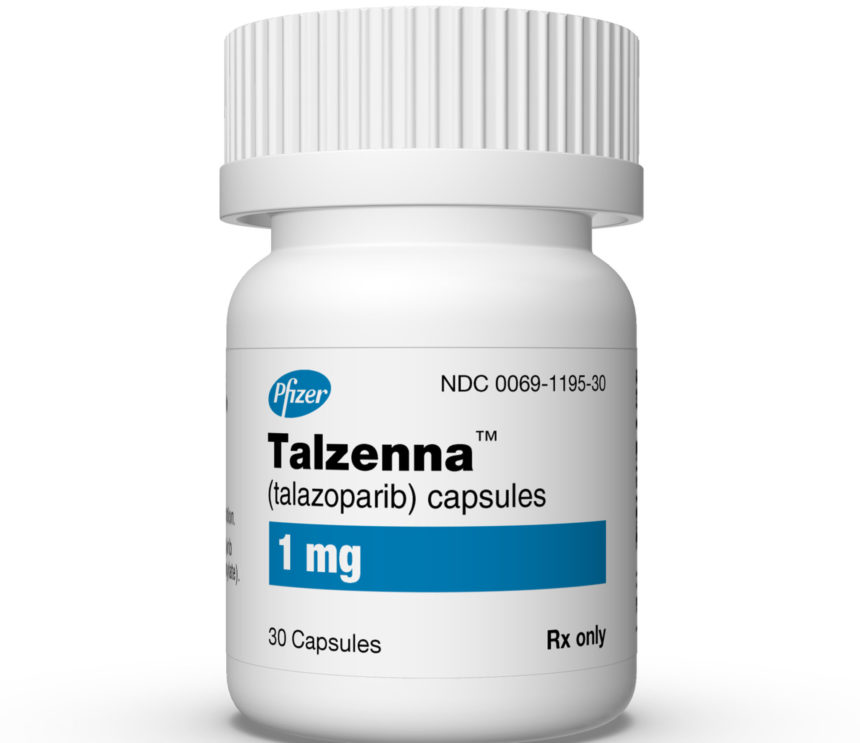Xeloda () vs Talzenna (talazoparib)
Xeloda () vs Talzenna (talazoparib)
Xeloda (capecitabine) is an oral chemotherapy drug that is typically used to treat breast, colorectal, and gastric cancers by interfering with DNA production, which is necessary for cancer cell growth and survival. Talzenna (talazoparib) is a PARP inhibitor used specifically for the treatment of certain types of breast cancer in patients who have inherited BRCA mutations, working by preventing cancer cells from repairing their DNA, leading to cell death. The choice between Xeloda and Talzenna would depend on the specific type of cancer, its genetic makeup, and the patient’s overall health profile, and should be made in consultation with an oncologist who can evaluate the appropriateness of each medication based on these factors.
Difference between Xeloda and Talzenna
| Metric | Xeloda () | Talzenna (talazoparib) |
|---|---|---|
| Generic name | Capecitabine | Talazoparib |
| Indications | Metastatic colorectal cancer, metastatic breast cancer, adjuvant treatment in colon cancer | gBRCAm HER2-negative locally advanced or metastatic breast cancer |
| Mechanism of action | Prodrug converted to 5-fluorouracil (5-FU) which inhibits thymidylate synthase, disrupting DNA synthesis | Poly (ADP-ribose) polymerase (PARP) inhibitor, which leads to DNA damage in cancer cells |
| Brand names | Xeloda | Talzenna |
| Administrative route | Oral | Oral |
| Side effects | Diarrhea, hand-foot syndrome, nausea, vomiting, abdominal pain | Fatigue, anemia, nausea, neutropenia, headache, vomiting |
| Contraindications | Severe renal impairment, dihydropyrimidine dehydrogenase (DPD) deficiency | None known specifically; generally, severe hepatic or renal impairment |
| Drug class | Antimetabolite, Fluoropyrimidine | Poly (ADP-ribose) polymerase (PARP) inhibitor |
| Manufacturer | Roche | Pfizer |
Efficacy
Xeloda (Capecitabine) Efficacy in Breast Cancer
Xeloda, also known by its generic name capecitabine, is an oral chemotherapy drug that is used in the treatment of breast cancer. It is a prodrug that is enzymatically converted to 5-fluorouracil (5-FU) in the body, which then interferes with DNA synthesis and slows the growth of cancer cells. Xeloda is particularly effective in the treatment of metastatic breast cancer, especially after failure of anthracycline-containing chemotherapy. In clinical trials, Xeloda has been shown to be effective as a single agent in improving progression-free survival and overall response rate in patients with metastatic breast cancer.
Additionally, Xeloda is used in combination with other drugs, such as docetaxel, and has been found to improve overall survival rates compared to those who receive docetaxel alone. The effectiveness of Xeloda in breast cancer treatment is also seen in the adjuvant setting, where it is used following surgery to remove the breast tumor, to reduce the risk of cancer recurrence. However, the efficacy can vary based on individual patient factors, including the type and stage of breast cancer, previous treatments, and patient health status.
Talzenna (Talazoparib) Efficacy in Breast Cancer
Talzenna, with the active ingredient talazoparib, is a poly (ADP-ribose) polymerase (PARP) inhibitor indicated for the treatment of adult patients with deleterious or suspected deleterious germline BRCA-mutated, HER2-negative locally advanced or metastatic breast cancer. Patients are selected for therapy based on an FDA-approved companion diagnostic for talazoparib. The efficacy of Talzenna was primarily demonstrated in a clinical trial that showed significant improvement in progression-free survival compared to standard chemotherapy in patients with BRCA-mutated, HER2-negative locally advanced or metastatic breast cancer.
Moreover, Talzenna has shown a meaningful impact on delaying disease progression and improving the quality of life for patients with this specific genetic profile. The targeted mechanism of action of Talzenna, which exploits the DNA damage response pathway deficiencies in BRCA-mutated cells, makes it a potent option for patients with this type of breast cancer. It is important to note that the use of Talzenna is highly specific to BRCA-mutated breast cancer, and its efficacy in other types of breast cancer or in patients without this mutation has not been established.
Regulatory Agency Approvals
Xeloda
-
European Medical Agency (EMA), European Union

-
Food and Drug Administration (FDA), USA

Talzenna
-
European Medical Agency (EMA), European Union

-
Food and Drug Administration (FDA), USA

-
Therapeutic Goods Administration (TGA), Australia

Access Xeloda or Talzenna today
If Xeloda or Talzenna are not approved or available in your country (e.g. due to supply issues), you can access them via Everyone.org.
How it works

Make an enquiry
Choose the medicine you want to buy, answer a couple of questions, and upload your prescription to speed things up. We’ll get back to you within 24 hours.


Make an enquiry
Choose the medicine you want to buy, answer a couple of questions, and upload your prescription to speed things up. We’ll get back to you within 24 hours.


Breeze through the paperwork
We'll guide you through the required documents for importing unapproved medicine, ensuring you have all the necessary information.


Get a personalized quote
We’ll prepare a quote for you, including medicine costs and any shipping, administrative, or import fees that may apply.


Receive your medicine
Accept the quote and we’ll handle the rest - sourcing and safely delivering your medicine.

Some text on this page has been automatically generated. Speak to your physician before you start a new treatment or medication.
Let's talk
If you have any questions, call us or send us a message through WhatsApp or email:
Contact us




